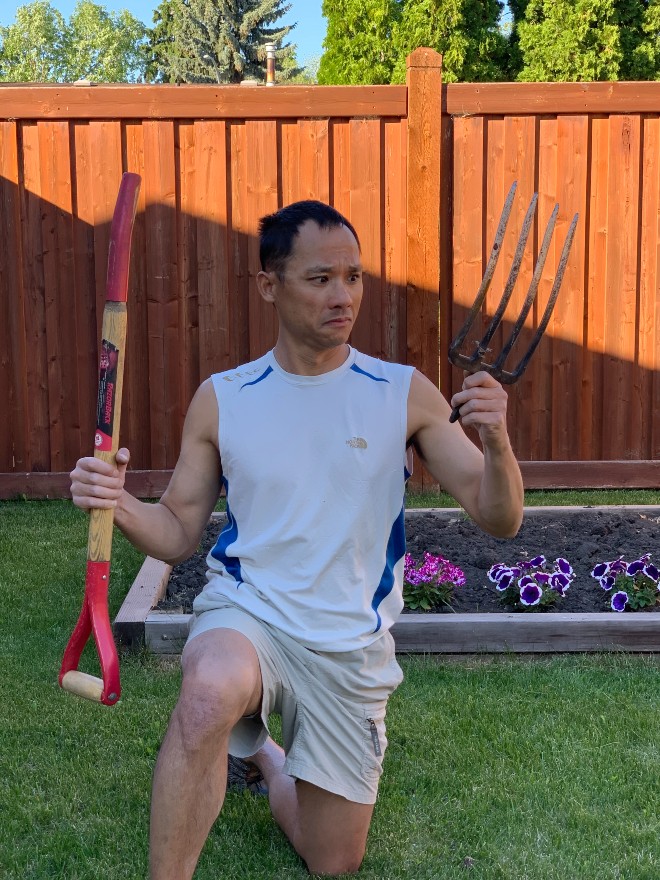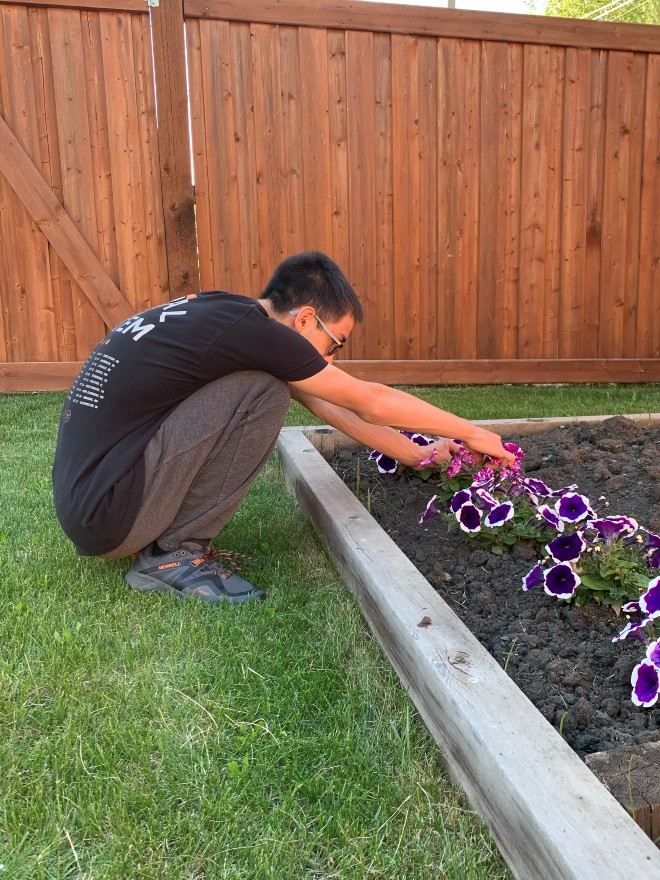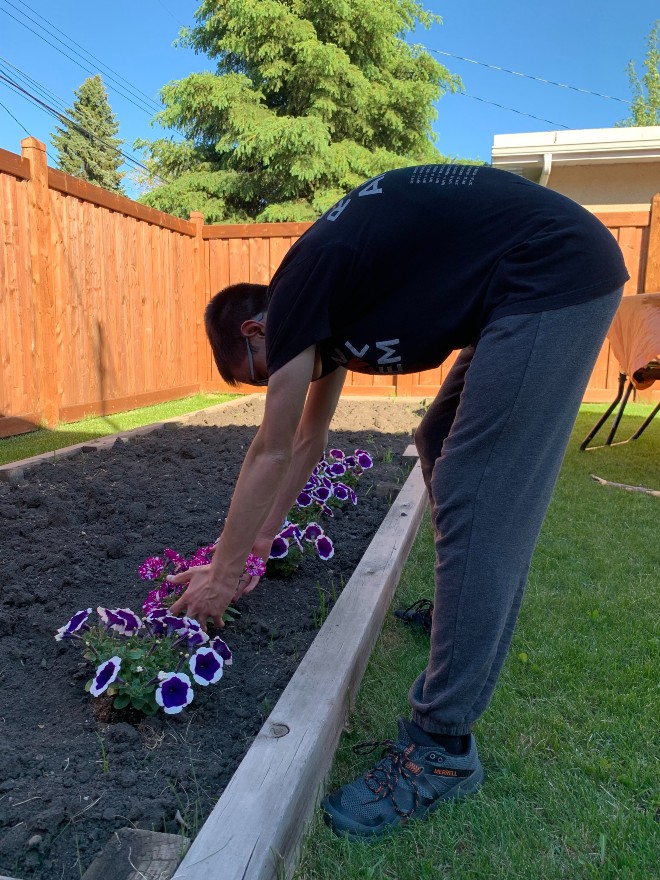
Welcome to our June blog! With warmer temperatures and longer daylight hours, most gardeners have already been busy seeding their gardens and planting their flowers. Some ambitious few have already stained decks and fences, been busy planting bushes and trees and landscaped yards and gardens and it’s only June!
Here in Edmonton, “summer” officially begins in June. And with that, we will try successfully or sometimes unsuccessfully, to pack in 6 months worth of activity into 3. After all, May still brings the occasional blast of winter and September is coming. As such, summer activities is ripe for injuries from the sporting to the gardening variety. One of the most common reasons for the development of any musculoskeletal injuries is the quintessential “too much-too fast-for too long” syndrome after a period of inactivity. In other words, our bodies appreciate slow progressions and consistency in any activity, whether you are starting a running program or lifting patio stones. Therein lies the problem of gardening, landscaping and building projects. We have a tendency to cram these activities into a weekend. It’s the classic “weekend warrior” syndrome.

As well, many of us this past year have shifted to working from home because of the pandemic and our Clinic has seen an abnormally high incidence of neck, back and shoulder problems from people doing too much sitting in less than ideal positions. Sitting places our bodies in long periods of flexion and problems will inevitably develop if we are not intentional about taking frequent, active breaks to perform extension exercises. Combine this with more flexion postures and activities that gardening, yard work and building projects demand and it is understandable how we might develop injuries.
A quick literature search on gardening injuries yielded some interesting findings. In 2007, the Royal Society for the Prevention of Accidents in the United Kingdom reported that in 2006, 87,000 gardeners required treatment in hospital from injuries resulting mostly from the use of powered and hand held gardening equipment. Lawn mower accidents ranked the highest at 6,500 to “hoses and sprinkler” at 1900!

In 2009, the Daily Telegraph published an article entitled “Gardening? It’s just as risky as rugby.” Apparently, gardeners attended clinics with ailments such as “gardener’s back”, “weeder’s wrist” and “pruner’s neck.”
And finally, in 2010, an article was published entitled “Gardening riskier than skiing” and stated “One in 10 Britons had been injured when gardening, which was four times as many as those hurt on the ski slopes.”
Whether it’s gardening or running or skiing, the point is clear. Any activity that is either unfamiliar or not performed for a long time and then when performed “too quickly, for too long” increases our risk for injuries. One can see how gardening can be precarious:
- It’s an activity that we do only 3 months of the year.
- When performed, we tend to do it for long hours over a very short period of time, like a weekend.
- Breaks are infrequent.
- The postures required usually involves long periods of flexion, crouching and bending.
- There is usually a lot of lifting, digging, shovelling, raking and carrying. The loads are either heavy or repetitive.
Prevention is key! This summer, to enjoy an injury-free growing and construction season, here are some key tips to follow:
- Plan ahead. Avoid cramming gardening and construction projects into short periods of time like an entire weekend especially if the activity requires heavy or repeated lifting and flexion postures.
- Alternate heavy lifting with lighter activities. Switch tasks and body positions regularly.
- Take frequent breaks. Set an alarm on your phone and don’t turn it off to continue working.
- Treat gardening and lifting like any sporting activity. It’s equally demanding on your body. Wise athletes prepare for workouts with proper warm up exercises and then cool down/recovery exercises afterwards.
- Remember that one of the most common predictors of a future injury is an unresolved injury. If you have difficulty bending your knee fully, then squatting, crouching and kneeling that gardening requires will tend to aggravate your condition. Seek the advice of a Physiotherapist for proper warm-up and recovery strategies. Compensating for a knee issue by over flexing your spine for example, will only create another issue.

Physiotherapists are Movement Experts. Prevention is key! Here at Elevation Physiotherapy, we wish you a successful summer season as you work wisely in your gardens!
Submitted by Albert Chan
